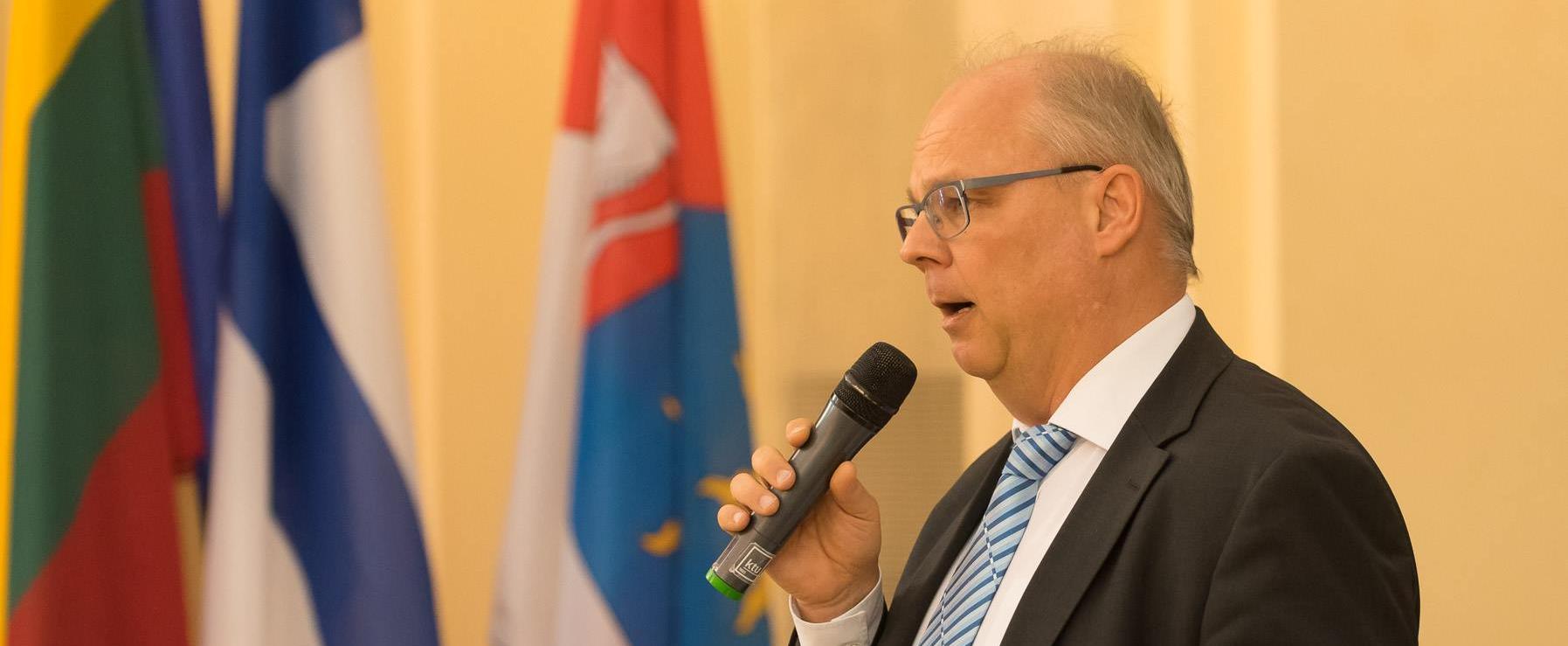Career path interview with the Finnish Ambassador to Cyprus Mr Harri Mäki-Reinikka
Interview with the Finnish ambassador to Cyprus as part of internship blog posts.

Ambassador Harri Mäki-Reinikka, thank you for agreeing to the interview. Thank you for interviewing me.
As you know, I’m studying Politics and Governance with a primary focus on the module of International Relations. It is my dream career to be a diplomat, and it is a dream career for many other students in my field. Could you tell a bit about your educational background and how you decided to go for a career in diplomacy?
So, I have been studying at Helsinki University. International politics, political history, national economics and sociology. I didn’t consider myself to be a diplomat immediately. I was a freelance journalist while I was a student, and then full time political journalist. Somehow I just found, with the help of my mother, that the Ministry of Foreign Affairs is seeking new diplomats through the international course that they use, KaVaKu, and I applied in 1985, and I was elected to the interviews and then to the course. That was by the way the last course of this kind, that the people who were selected to the course were not recruited immediately or directly to the Ministry. So we even had to compete during the course between our colleagues there. I was lucky enough to get in, and then I started as a diplomat in 1986. That means it’s been 36 years to me. I have been serving quite a long time, and perhaps can be considered quite a seasoned diplomat in a way. Most of the time I have been serving abroad, almost 22 years. I have been posted in Paris, in Algeria, in the UK, in Switzerland in Geneva, and then I was ambassador for the first time in 2008 in Syria where I also covered Lebanon, Jordan and Iraq as Finnish ambassador. Then I moved to Lithuania, where I also covered Belarus. After that I have been working for Arctic cooperation as the Secretary General of the Finnish Arctic Advisory Board, and then ambassador for Northern policies before I started here in Nicosia in Cyprus in September 2020.
What is some advice that you would give to students who aspire for a career in diplomacy?
Be open-minded and try to get some experience by getting an internship in one of the embassies of your country abroad, because that is the best way to learn about what this diplomacy is all about. Interns in our embassies can in three months, sometimes it’s six months also, learn quite a lot, and the embassies can use their services and help also in many ways, not only in political reporting or economic reporting but also in consular issues
and also in media issues, and also just in simple work-like things like being part-time receptionist or whatever.
Then the final question. You have had a very long career as a diplomat. What are some things about a career as a diplomat you have learned that can be learned only through experience?
Patience. And also that you have to be careful in your words, in what kind of words you use in your diplomatic conduct. For example here in Cyprus it’s very difficult if you don’t know the background history and terminology of the Cyprus conflict. Otherwise it will be a verbal minefield if you don’t know the background. Diplomacy teaches people to be exact, and also when needed being able to use language that is somehow protracting in difficult situations. It can be constructive in its ambiguity. So ambiguity is a word in a way that sometimes you are not so exact, but you are almost, or just referring to something that it’s all about or something like that, but you cannot go furthermore in substance with that. Constructive ambiguity is an expression that you will also learn quite well in diplomacy. But also, diplomacy doesn’t really mean that you are a diplomatic person. I have been noticing that in tough negotiations diplomats can be very straightforward. Sometimes the most successful peace mediators, like Martti Ahtisaari or many others, have been quite straightforward. They didn’t complicate the issues by themselves, because they see this as a problem, and conflicts are already complicated enough. It’s also very often known that intelligent people create more complicated problems, and then you have to make it a bit more simple, to also understand the possible solution in the conflict. We have a lot of experience about peace-mediation in Finland. But you can be a great diplomat. In different positions you can have different aspects. I have been in the beginning working on trade issues, I used to be even the chairman of the International Coffee Organization, in 1994-95 in London. So it changes sometimes. During my latest years as ambassador, I have been focusing a lot on export proposals for example.
Alright, that was a great answer. That is valuable information for sure, and a useful insight into the career. Thank you for the interview.
I hope so. Thank you.